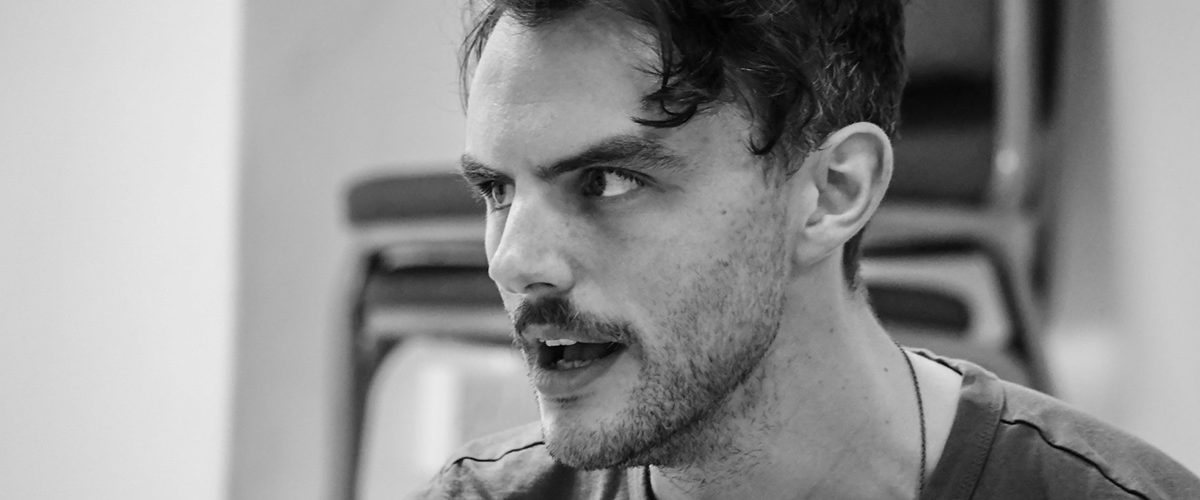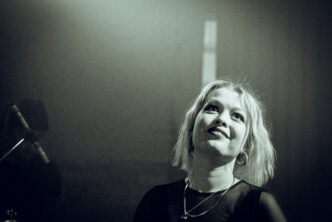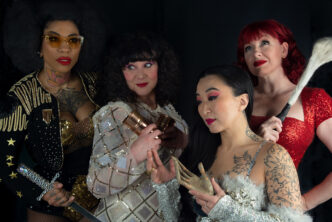Elysium Theatre return to the north west with the Northern premiere of their production of Athol Fugard’s Playland, set in South Africa under the Apartheid regime. Carmel Thomason talks to co-founder and actor, Danny Solomon
What is the story of Playland?
Danny: “Playland is the story of two men in Apartheid South Africa – one black, one white – who encounter one another on New Year’s Eve, 1989, just before the decade which saw the release of Nelson Mandela and the passing of white minority rule. Fugard wrote it after the event, but set it before, so the characters have no idea of what is to come. They meet in a forgotten corner of a travelling funfair, Playland, somewhere in the wilderness of the Karoo, the region of South Africa where Fugard lived. As the decade passes, both must face their bloody pasts and try and find their own redemption”.
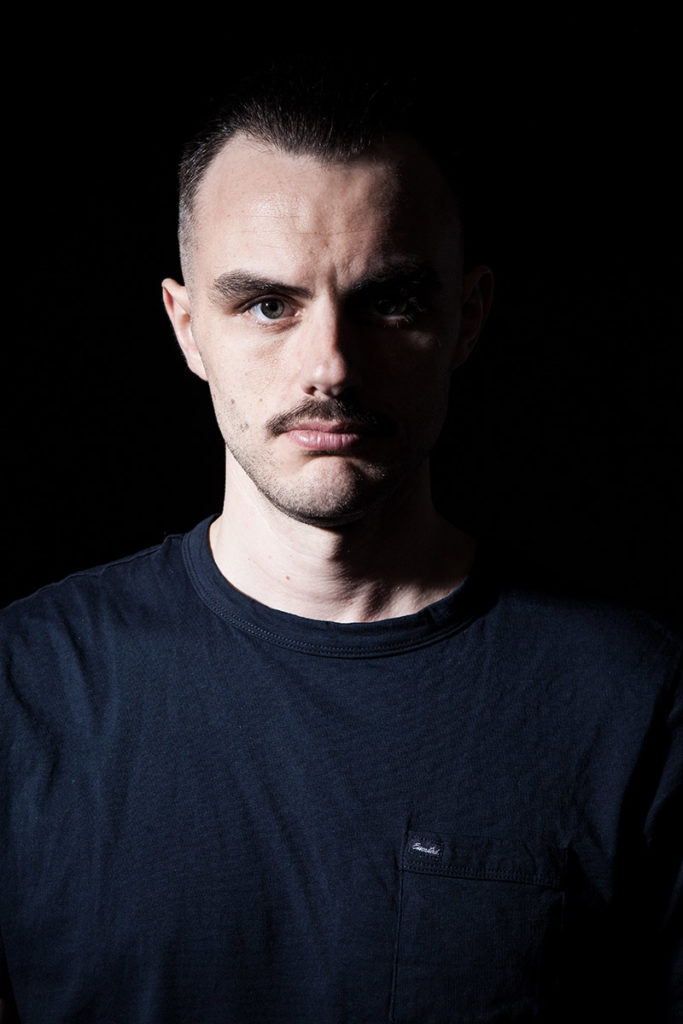
It sounds gruesome in parts. Is there an age recommendation for the audience?
Danny: “I’d say it’s a play suitable for everyone over 16. It deals with dark themes of violence, war and mental trauma, but the grim and gruesome parts are all in the words. The characters reveal the atrocities they have lived through in their pasts. But the play is also very funny, and ultimately very hopeful”.
Why do you think the play is so rarely performed?
Danny: “It’s not because it’s a bad play! It’s more a symptom of differing political winds and the tides of history. Fugard is one of the English-speaking world’s greatest living playwrights, but he was at his height when Apartheid was still going. As part of the political resistance that meant his plays were done all the time. Once Apartheid fell and the world seemed to be moving away from all that, perhaps there was a sense that the plays were no longer relevant.
“But as the sudden wave of revivals going over all over the country – ‘Master Harold and the Boys’ at the National Theatre and ‘The Blood Knot’ at The Orange Tree – show we can now see that Fugard’s plays go way beyond their historical context. They stand as universal dramas about race, politics and human nature. And with the rise of the Far Right all across the globe, the plays have taken on a whole new resonance that shows how universal and relevant they really are”.
Did any of you have any contact with the playwright, Athol Fugard during the rehearsal process?
Danny: “We haven’t had direct contact with Athol Fugard, no, but when our director, Jake was at The Royal Exchange in 2002, he masterminded a South African season in the Studio which included the first play by a black South African to be performed in the UK and another which dealt with PTSD and the effect of the Border War on white South African soldiers. He knows the background inside and out, so we’re in good hands. He also met Mannie Manim of the Market Theatre, who was a life-long colleague of Fugard’s and did the lighting for the original production of ‘Playland’, and introduced us to various South African ex-servicemen and civilians living in this country who filled us in on it all. In addition to that, by lucky coincidence the actor who plays the voice of ‘Barking Barney’ Barkhiuzen grew up in South Africa, so was able to give us first-hand accounts of the time of the play”.
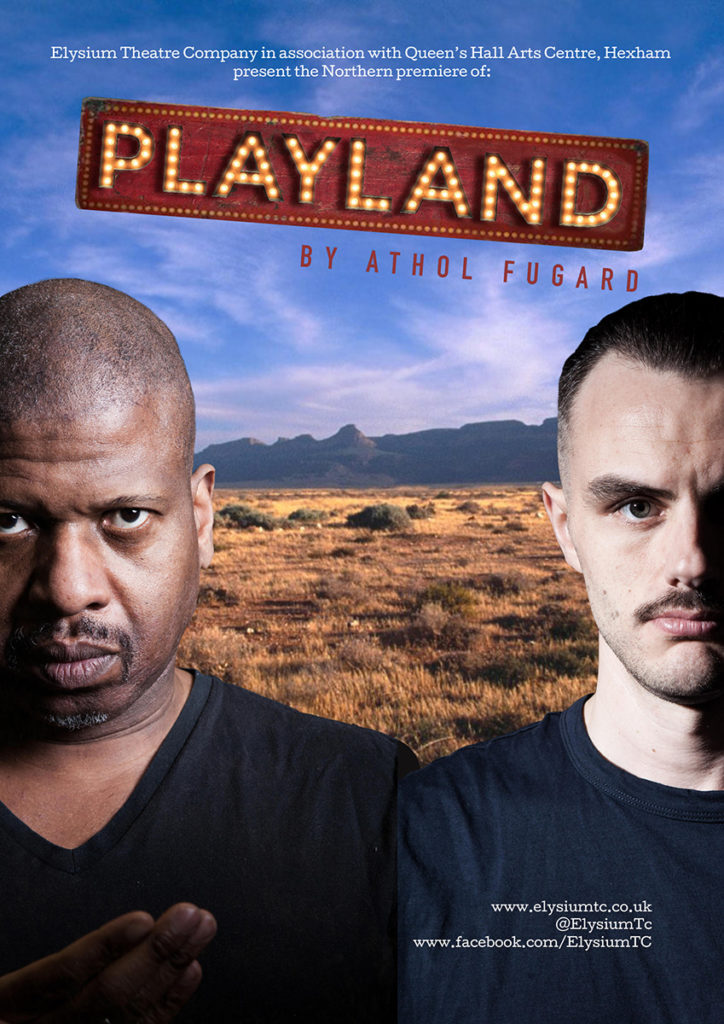
Tell us about your character, Gideon Le Roux?
Danny: “Gideon is a veteran of the South African Border War, which raged for 20 years in Angola and Namibia. He’s wild and fiery and very much a man of the land, driven by his senses. As the play moves along, it becomes clearer and clearer that Gideon is suffering from PTSD and carries a lot of pain within him that he needs to drive out somehow and find redemption. He’s a chaotic man, confused and traumatised, caught between anger and despair, but deep inside him is a wounded man with a strong moral sense, and it’s that he is trying to free”.
It is an intense two-hander. How do you and Faz Singhateh balance each other?
Danny: “Faz and I have worked together for Elysium before, on a brilliant American play called ‘Jesus Hopped The A Train’ at Home, Manchester (which, funnily enough, has similar themes to ‘Playland’) so we already have a strong understanding of how we both work. Faz is a brilliant actor and it’s been a joy to get back into the rehearsal room with him again. We both want to bring out the best in each other to make the most of this powerful play. Elysium is very much an ensemble-driven company, so reuniting was an added bonus why we wanted to do this play.
“In terms of the characters, there is a constant balancing of one another. Martinus begins very steady and cautious whilst Gideon has free reign, as a white man. But this shifts back and forth all the way through”.
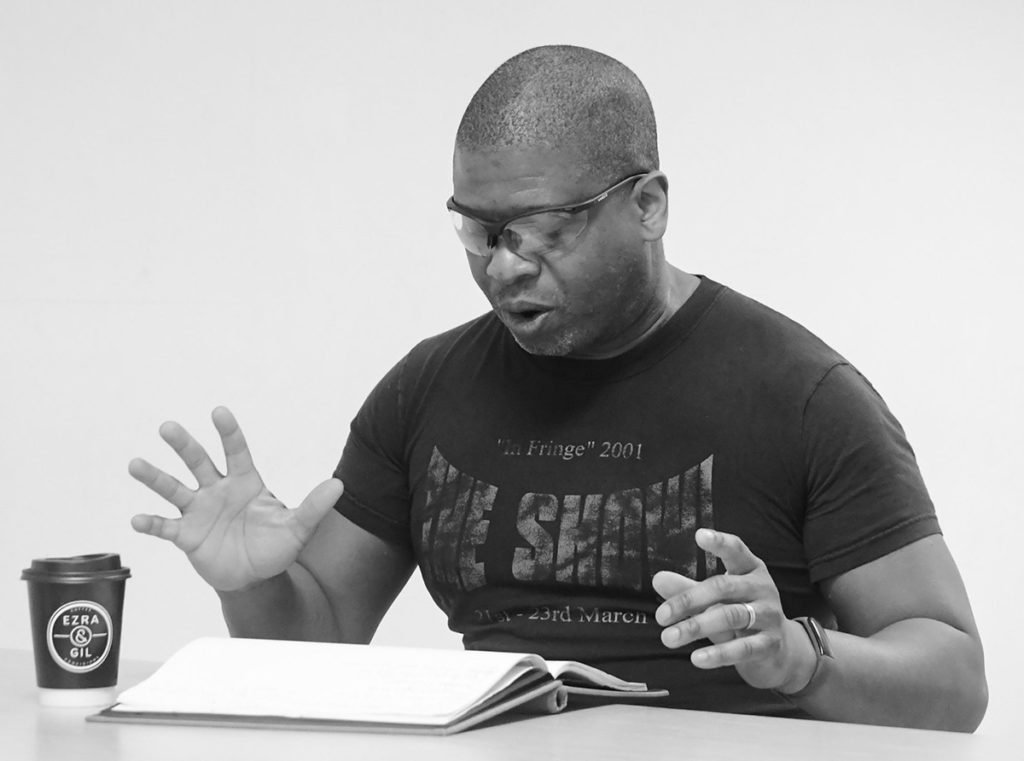
You were too young to remember the apartheid regime in South Africa. How do you think other young people like yourself will respond to the play?
Danny: “I think it could be quite easy to go in to this play and be shocked by the way these characters relate to one another. From the get go, there is a sense of superiority that Gideon has over Martinus and this is inherent in the Apartheid culture of the time. Much like it was, and in some cases still is in the American Deep South, for example.
“It’s my job as an actor to rid myself of my British sensibilities to be able to tap-in to the mindset of being a white man of the time and place and bring that to the stage and make that seem every-day. And how younger people respond to that will be interesting.
“At the same time the drama is very immediate. The intensity of racism is something we encounter every day, especially in our current predicament as a nation. The brilliance of ‘Playland’ is that although it’s set in South Africa during Apartheid – or perhaps because of that – it speaks directly to our experience of racism now.
“So, I think young people will relate to it very powerfully, even if they don’t know about Apartheid. The story is instantly recognisable. And if they learn more about Apartheid and decide ‘never again’, that’s an added bonus”.
Has the play and its themes impacted on you in any way?
Danny: “It’s very early on in the rehearsal process so it’s difficult to tell how’s it’s affected me so far. I can say I’ve been affected by the research I’ve done on Apartheid and the lives of people under its laws. And I’ve also played a character suffering from PTSD before, so I know it can be very affecting when portraying a character dealing with so much pain. It can be very draining physically and emotionally playing through these scenes over and over so it’s something I have to manage carefully”.
What would you like people to take from the show?
Danny: “I’d like people to see these two broken men, who seemingly have nothing in common, find some way to redemption in each other. And maybe if these two can do it, anyone can do it!”
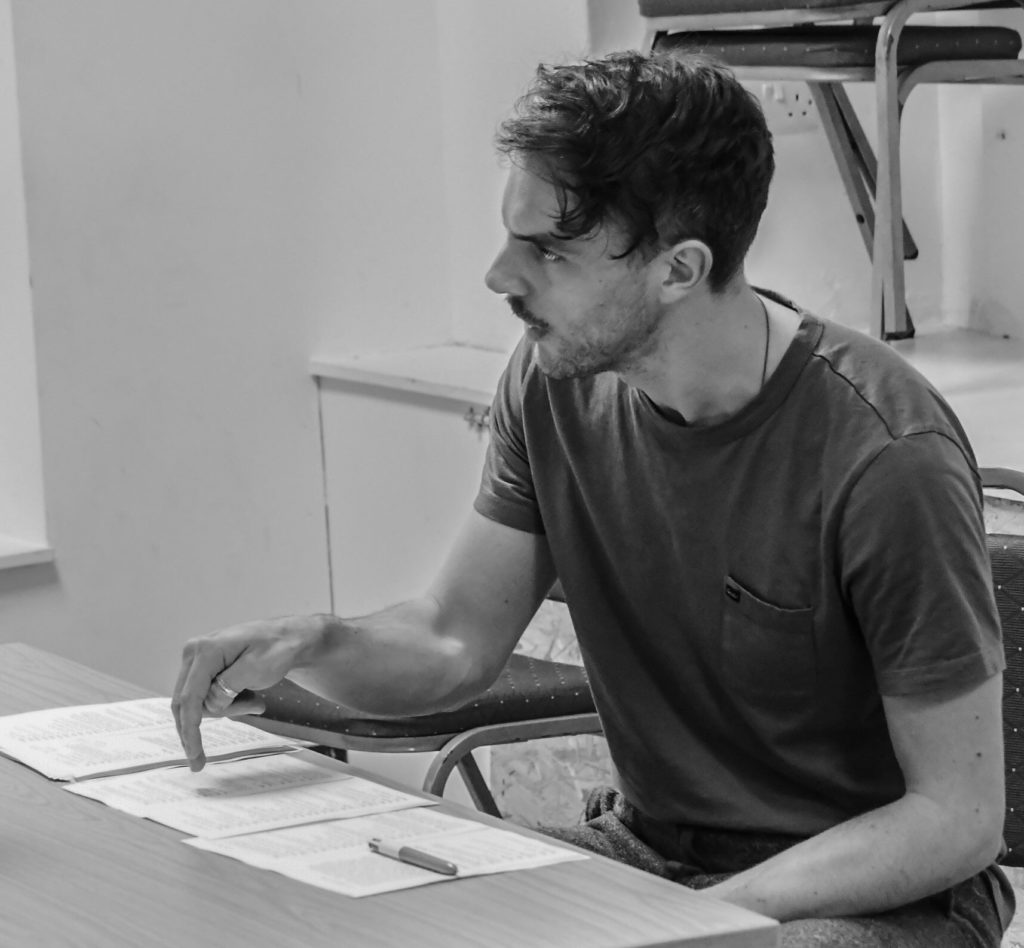
This is your fifth show for Elysium. What do you enjoy about working with the company?
Danny: “Well, Jake and myself co-founded the company and one of our main aims was to just do great work together. And we’ve been doing that consistently. It’s been a huge surprise for us how much we’ve been able to do in such a short time, five productions by top class writers from Jez Butterworth to August Strindberg. For me, doing great work with good people, is everything”.
Playland from Elysium Theatre runs as part of Black History Month at The Empty Space @ Footlights House, Media City UK from Thursday 31 October to Saturday 2 November at 7.30pm. See website for more dates.
Jake Murray – I was only truly able to find my own voice by leaving the Royal Exchange.

